☆ PuniPuni Youtube ☆
Japanese Grammar Lesson 9: Past tense verbs – Review Notes
Today we learned about polite past tense verbs in Japanese! We learned how to change verbs from present, ます (masu) to past, ました (mashita)! In this review we will go over the concepts from the video and see some more examples.
………………………………………………………………………………..
Review from last time: ます (masu) verbs
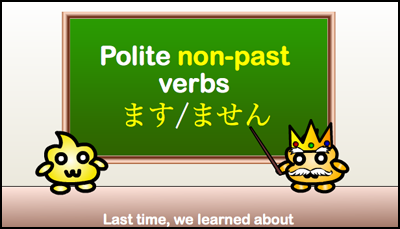
★ Last time we learned about the polite non-past form of verbs, also known as the ます (masu) form.
………………………………………………………………………………..
Today’s lesson: Polite Past tense verbs

★ Today we learned about the polite past form of verbs.
★ Verbs in this form end in ました (mashita).
………………………………………………………………………………..
Change from ます (masu) to ました (mashita)
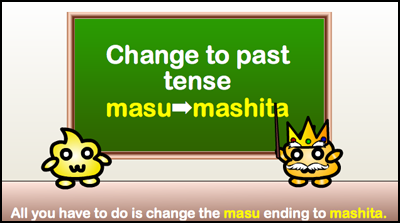
★ To change a verb from present to past tense, just change the ます (masu) ending to ました (mashita).
………………………………………………………………………………..
For Example:
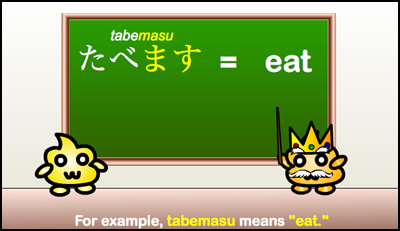
★ たべます (tabemasu) means “eat” in Japanese.
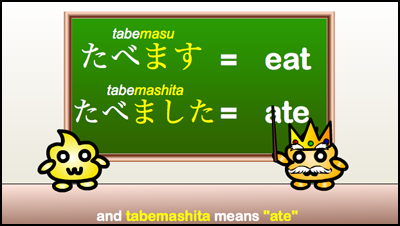
★ たべました (tabemashita) means “ate” in Japanese.
………………………………………………………………………………..
Example Sentences:
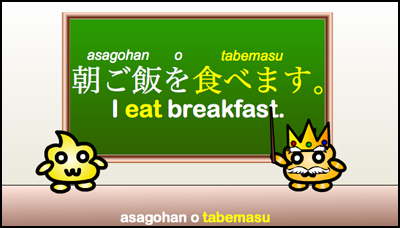
朝ご飯を食べます
asagohan o tabemasu.
I eat breakfast.
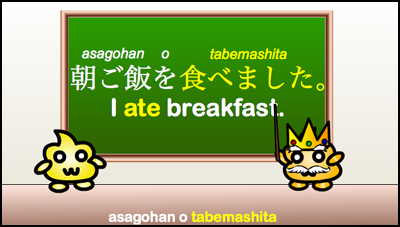
朝ご飯を食べました。
asagohan o tabemashita.
I ate breakfast.
………………………………………………………………………………..
Review of Negative form: ません (masen)
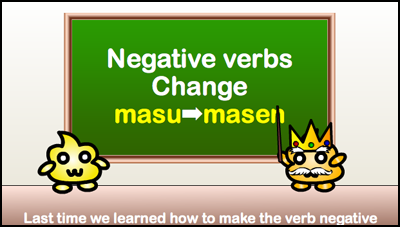
★ Last time, we learned how to make the verb negative by changing the ending ます (masu) to ません (masen).
………………………………………………………………………………..
Negative Past tense: masen+deshita
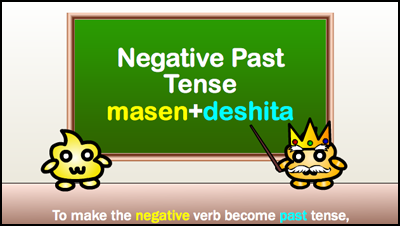
★ To make the negative past tense, just add でした (deshita) to the end of the negative verb.
………………………………………………………………………………..
For example:
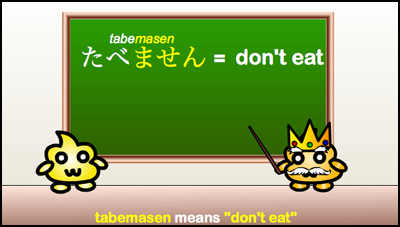
★ たべません (tabemasen) means don’t eat.
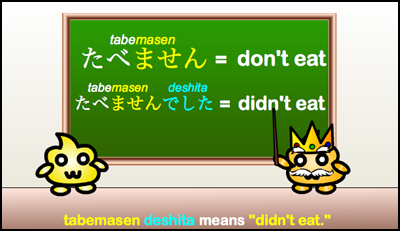
★ たべませんでした (tabemasen deshita) means didn’t eat.
………………………………………………………………………………..
Example Sentences:
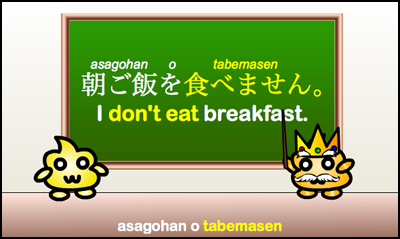
朝ご飯を食べません。
asagohan o tabemasen.
I don’t eat breakfast.
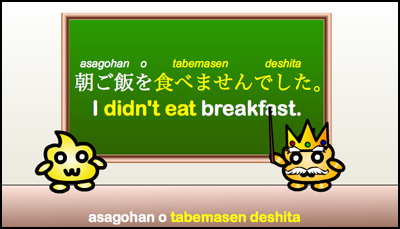
朝ご飯を食べませんでした。
asagohan o tabemasen deshita.
I didn’t eat breakfast.
………………………………………………………………………………..
Example 1:
しゅくだいをしました。
Shukudai o shimashita.
I did homework.
………………………………………………………………………………..
Example 2:
今日は学校に行きました。
Kyō wa gakkō ni ikimashita.
Today I went to school.
………………………………………………………………………………..
Example 3:
彼女はパーティーにきませんでした。
kanojo wa pātī ni kimasen deshita.
She didn’t come to the party.
………………………………………………………………………………..
Additional verbs list:
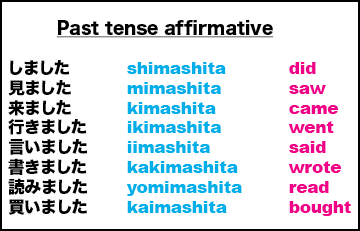
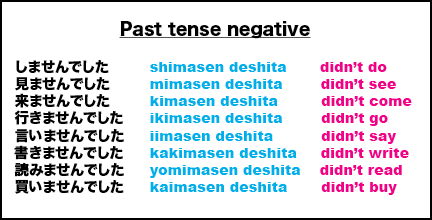
………………………………………………………………………………..
Conclusion:
Today we learned about the polite past form of Japanese verbs. We learned how to change a verb from present to past by changing the ます (masu) ending to ました (mashita) for affirmative verbs, or by changing ません (masen) to ませんでした (masen deshita) for negative verbs.
………………………………………………………………………………..
Get Japanese dictionary!
Do you want to know a lot of Japanese words? I recommend you to get a dictionary!
If you have dictionary, you can always look up new Japanese words\(◕ω◕)/♥
………………………………………………………………………………..
Do you want a Japanese tutor?
Take Japanese Skype Lessons with Professional Japanese Teachers on kakehashijapan.com!
………………………………………………………………………………..
………………………………………………………………………………..













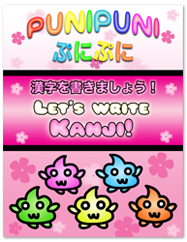


2 comments
that statement “i don’t eat breakfast”
“asagohan o tabemasen”
how can i change this into a question?
“why didn’t you eat breakfast?”
is it “nande asagohan o tabemasen ka?” or is it “nande asagohan o tabemasen deshita ka?” or is it doushite rather than nande?
and how about if i want to change the statement from don’t to can’t?
i can’t eat pork.
is it “watashi wa buta niku o taberaremasen”
how to say ‘i can’t eat pork because i’m a muslim’?
and if i want to say my sister doesn’t eat eggs. is it “watashi no imouto ga tamago o tabemasen”
thanks sensei.
Comment by heritz on 03/31/2014 at 7:49 pmThere are many, many ways to say the same thing in Japanese (and any language). Here is one natural way to say each of the sentences that you are asking about:
Why didn’t you eat breakfast? = なぜ朝ご飯を食べませんでしたか?(naze asagohan o tabemasen deshita ka?)
Comment by PuniPuni on 04/03/2014 at 10:04 amI can’t eat pork = 私は豚肉を食べれません。(watashi wa butaniku o taberaremasen.)
I can’t eat pork because I am a Muslim = 私はイスラム教徒なので豚肉を食べることができません。(watashi wa isuramu kyōto nanode butaniku o taberu koto ga dekimasen.)
My sister doesn’t eat eggs = 私の妹はたまごを食べません。(watashi no imōto wa tamago o tabemasen.)